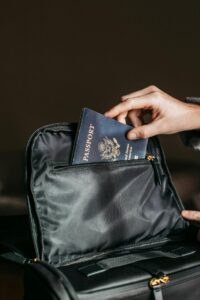The Violence Against Women Act of 1994 has been very instrumental in helping abuse victims escape abusive relationships. It does this by offering protection and generating benefits for these victims to encourage them to leave their abusive partners. The most important of these benefits is that VAWA immigration allows non-citizen victims to get immunity from deportation and even apply for permanent residency in the United States.
VAWA immigration helps ensure that abuse victims are not threatened into staying in abusive relationships for fear of deportation. However, the process can be somewhat complex, especially for people who are not familiar with the immigration laws. Luckily, this article will help provide the necessary information by answering frequently asked questions about VAWA immigration. Here are some of the most asked questions about this immigration system.
Is VAWA Only Applicable to Women?
Because VAWA translates to the Violence Against Women Act, it can often be mistaken as a benefit that applies to women alone. But that’s not the case. In fact, VAWA itself is all-covering and can apply to both men, women, parents, and children. This act recognizes that abuse is not particular to specific genders, and aims to help all victims get free from their abusers.
What Are The Conditions For VAWA Immigration?
VAWA immigration can be pretty straightforward if you understand the concept. However, you still have to meet the conditions if your petition is to be approved. Here are the conditions necessary for VAWA immigration.
- You must be eligible for VAWA before applying for its benefits. This means that you must be a non-citizen, and you must have a qualifying relationship with an abusive US citizen or lawful permanent resident.
- The other eligibility condition is that you must have suffered abuse at the hands of the US citizen. You should be able to provide proof of abuse before petitioning for VAWA.
- Petitioners must be living in the United States or provide proof that they were at the time of the abuse.
- All petitioners must have good moral conduct. This means that you must be a person of good character and have a clean criminal record to qualify for VAWA.
Is VAWA Limited to Physical Abuse?
No, VAWA and its benefits are not limited to victims of physical abuse only. In fact, it applies to all types of abuse, including domestic violence, sexual abuse, psychological abuse, emotional blackmail, modern slavery, material abuse, etc. You can qualify for VAWA if you have suffered any type of abuse in the past. However, you must provide evidence of abuse or proof that you have suffered abuse at the hands of a US citizen or lawful permanent resident.
Is it Hard to Get Approved for VAWA Immigration?
Like every other immigration option, the VAWA immigration process can be complex and difficult to process. In fact, statistics show that only about 25% of all VAWA petitions get approved, and that underlines how difficult VAWA immigration can be. If you have sufficient proof and pass the basic requirements, then you have a good chance of getting approved.
How Long Does VAWA Take To Be Approved?
It is completely normal to be concerned about the processing time of your VAWA application. However, all petitioners must note that VAWA cases vary, and so does their processing time. Some of the reasons for the time difference include the workload at the USCIS branch, the complexity of your case, and other factors like insufficient evidence provided. On average, VAWA applications take about 24 months to process. And in cases where a Green Card petition is made, it can extend beyond 30 months.
Does the VAWA Cancellation of Removal Guarantee a Green Card?
No, VAWA cancellation of removal only protects abuse victims from being deported while their VAWA application is being processed. It does not in any way guarantee a Green Card. But, it is certainly an avenue to securing a Green Card, as you can start applying for a Green Card as soon as your VAWA is approved.
What’s Next After VAWA Approval?
Of course, the entire VAWA process can be strange to first-time petitioners, and they can sometimes be lost for what to do after their application is approved. If you find yourself among this category, here’s a little tip. Firstly, you have to be able to identify when your VAWA immigration application is approved, and that’s the easy part. If you have been cleared, you will receive a mail saying your Form i-360 has been approved.
Next, you can apply for your green card. Of course, you’ll have the opportunity to apply for a Green Card at the same time you petition for VAWA. If you did not pre-apply, you may have to wait for your approval email before continuing with it. But if you already applied, then you’ll need to just wait another 30–60 days to receive your Green Card.
What If I Don’t Have Enough Evidence of Abuse?
VAWA immigration processing is often helped by the correct and adequate presentation of evidence. Of course, you can still stand a chance if you don’t have ample evidence to show. However, in such cases, you most definitely want to partner up with a VAWA lawyer. A VAWA lawyer is an expert law practitioner who specializes in VAWA cases, and they are well equipped to help you.
A good VAWA lawyer can help you secure more evidence like signatures from friends, neighbors, and colleagues who were aware of your condition. They can also help you make undeniable cases before the immigration board with however little evidence you have to ensure your VAWA application gets over the line.
The Coleman Law Group Can Help You
It goes without saying that you want a very good lawyer if you want the best result from your case. Luckily, the Coleman Law Group is always on hand to help VAWA victims get justice and other VAWA benefits. You can always count on our lawyers to come through and help your VAWA immigration be successful.



